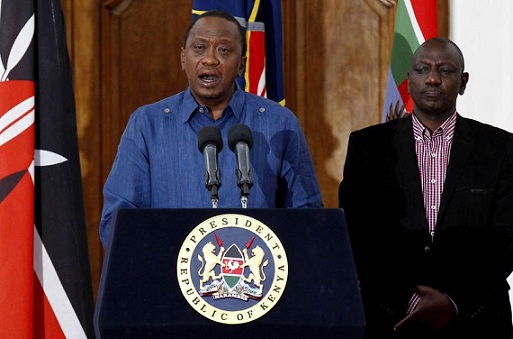
Kenya’s president urges citizens to help end corruption

President Uhuru Kenyatta urged Kenya’s young people on Sunday to make citizen’s arrests of those suspected of corruption, a vice that is endemic in the country.
Critics have called Kenyatta’s regime the most corrupt of the four leaders that Kenya has had since gaining independence from Britain in 1963.
With Kenyatta in his second term after a disputed re-election victory last year, his administration has made a flurry of arrests of officials named in corruption scandals in recent weeks.
The president said in the western Kenya town of Kisii during festivities to mark International Youth Day that young people should not be afraid to arrest the powerful and take them to the police.
“The power is in your hands to end this vice in this country,” he said.
Kenyatta’s remarks were met with skepticism because he urged that those arrested be taken to the police. The police force is notoriously corrupt, and cases generally are pursued or dropped depending on who pays bribes demanded by officers.
An effort by the National Police Service Commission to weed out errant police officers that started in 2012 has been criticized for not doing enough to reform the 99,000-strong force, whose leaders admit corruption is widespread.
Kenyatta announced in June that the government would introduce lie detector tests for all heads of procurement and accounts in government ministries, departments and agencies, but that also was met with pessimism as many analysts questioned the reliability of the machines.
In 2015, Kenyatta declared corruption a national security threat and said revenue officers and custom officers would be vetted, but that has never happened.
Patrick Gathara, a political commentator and cartoonist, said the flurry of recent corruption arrests “is nothing new.”
Very few people are prosecuted for corruption even though authorities say that graft siphons off up to a third of the government’s budget, or nearly $6 billion a year.
Out 26 people charged with corruption over missing millions meant for the national Youth Service in 2015, 23 people were acquitted, Gathara said.
He said the real focus should be on the administration’s lack of policy proposals to seal loopholes that allow graft to occur.






